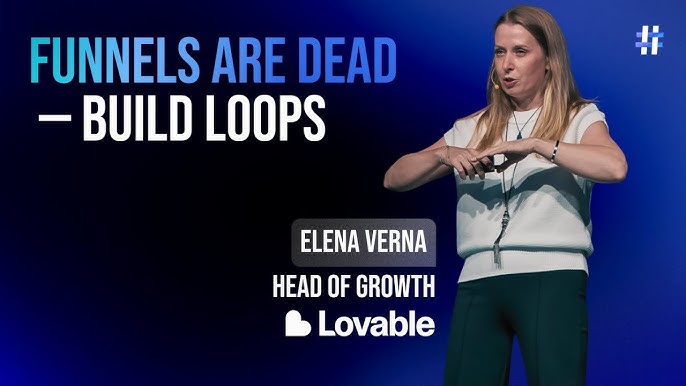
'We cannot let ourselves be blackmailed by Russia,' EU Energy Chief on Russia gas imports | DW News
DW News
6,367 views • 6 hours ago
Video Summary
European Union ministers have agreed to cease purchasing Russian gas, both pipeline and liquefied, by January 2028. This decision, reached after protracted internal divisions, reflects a commitment to ending financial support for Russia's war efforts and resisting energy blackmail. The phased approach accommodates the transition for member states, with larger economies like Germany having already significantly reduced their reliance on Russian gas. While previously hindered by opposition from Hungary and Slovakia, the EU will now proceed via majority vote, demonstrating a united front despite individual reluctance. This move is also influenced by external pressures, including from the United States, and aims to further diversify EU energy sources. A significant underlying factor is the EU's position as a major financial backer of Ukraine, coupled with the potential leverage of hundreds of billions of euros in frozen Russian central bank assets.
One compelling fact is that a few years ago, around 45% of the EU's gas imports came from Russia, a figure that has now been reduced to 13%, with the aim of further decreasing this reliance
Short Highlights
- EU ministers agreed to ban Russian gas (pipeline and LNG) imports by January 2028.
- Last year, Russia accounted for 20% of the EU's gas imports.
- The decision faced opposition from Hungary and Slovakia but was advanced via majority vote.
- Previously, EU imports of Russian gas were around 45%, now reduced to 13%.
- EU is exploring leveraging hundreds of billions of euros in frozen Russian central bank assets for Ukra
Key Details
EU Agrees to Ban Russian Gas Imports by 2028 [00:00]
- EU ministers meeting in Luxembourg have agreed to stop buying Russian gas by January 2028 at the latest.
- The ban will encompass both pipeline gas and liquefied natural gas (LNG).
- In the previous year, Russia constituted a fifth (20%) of all gas imports to the EU.
- This decision is part of a broader effort by the EU to compile further sanctions against Russia and counter attempts to circumvent existing oil export bans.
- The EU Energy Commissioner stated the clear signal is that this situation "will no longer stand" and the EU cannot be "blackmailed by Russia" or fund their war.
- While unanimity was preferred, the decision proceeds with strong support from most member states, despite two countries not backing it.
"So this is uh something that we would of course prefer to do with unonymity."
Internal Divisions and Phased Approach to Gas Ban [01:32]
- The delay in taking this action is attributed to divisions within the EU bloc.
- While financially, politically, and militarily supporting Ukraine, EU countries continued importing Russian fossil fuels.
- Following bans on Russian coal and most Russian oil in 2022, Russian gas remained largely untouched legally.
- Larger EU states, such as Germany, have successfully reduced their dependence on Russian gas.
- The decision was particularly difficult due to opposition from Hungary and Slovakia, who are seen as more diplomatically aligned with Russia and reluctant to end their energy dependence.
- The EU overcame potential vetoes from these states through a majority vote, giving the plan a "rubber stamp."
- The ban will be implemented in phases: shorter-term contracts banned from next year, medium-term contracts following, and long-term contracts becoming illegal by January 1, 2028.
- This phased approach is defended as necessary due to the complexity and time required for such a transition.
"Now the EU has looked at its own internal workings and said look we find a way to get over overcome what would have been a veto from Hungary and Slovakia and to move this forward."
External Pressure and Diversification Efforts [03:09]
- Pressure from Donald Trump and Washington has been a significant factor in this decision.
- The EU has been actively diversifying away from Russian fossil fuels for years.
- A few years ago, Russian gas imports accounted for approximately 45% of the EU's total gas imports.
- This figure has since decreased to 13%, though the EU considers this still too high.
- The United States is not a neutral party, as the EU often turns to the US for gas imports when looking outside of Russia.
"But it's important to note like this didn't come out of nowhere. The EU has been diversifying away from dependence on Russian fossil fuels."
Concerns Over Proposed Trump-Putin Meeting in Budapest [04:00]
- EU leaders are voicing concerns about a proposed meeting between Donald Trump and Vladimir Putin in Budapest, with no date yet set.
- The Lithuanian foreign minister stated there is "no place for war criminals in Europe."
- This sentiment is echoed by many, emphasizing that Europe must not be a transit or meeting point for individuals sought for war crimes.
- Hungarian Prime Minister Viktor Orbán is viewed as the most Russia-friendly member of the EU, having repeatedly delayed or blocked sanctions against Russia and criticized EU support for Ukraine.
- EU's top diplomat stated it's "not nice to have a man who is, let's not forget, wanted by the International Criminal Court for suspected war crimes expected to be arriving on EU territory."
- Technical questions arise regarding permissions for airspace entry for Putin to reach Hungary, a landlocked country.
- EU states are in a difficult position, not wanting to alienate Washington while keeping Donald Trump engaged.
"The only place for for Putin in Europe that's in H in front of the tribunal, not in any of our capitals and this is very clear."
Addressing Territorial Concessions and EU Leverage [06:22]
- EU top diplomat Josep Borrell warned against offering any territorial concessions to Russia, stating it would signal to other countries that they could seize territory in the future.
- This is a particular fear for EU states geographically close to Russia or those with a history under Russian influence, such as the Baltic states.
- Territorial concessions would embolden Vladimir Putin, suggesting a potential for further aggression.
- The EU is considering its leverage, including its role as the top financial backer of Ukraine and its commitment to providing more weapons than the United States, given Trump's unpredictable policies.
- The EU also holds hundreds of billions of dollars worth of frozen Russian central bank assets, which they are exploring as a means to provide financial support or reparation loans to Ukraine.
"The EU countries are looking toward brokering a deal to try and leverage those hundreds of billions of euros worth of of funds and try to give them to Ukraine or use them at least to fund a kind of reparation loan for Ukraine."
Commissioner's Perspective on Gas Ban and Sanctions [08:16]
- EU Energy Commissioner Dan Jurgensson reiterates that the gas ban is a gradual process, with significant parts kicking in sooner rather than later.
- The urgency is driven by the need to stop indirectly financing Putin's war and prevent gas from being weaponized against member states.
- Internal opposition from countries like Hungary and Slovakia has been a reason for delays.
- The new plan is structured as a "trade measure," which does not require unanimity, allowing the EU to proceed even without full consensus.
- The Commissioner acknowledges that while unanimous support is desired, broad support exists, and the EU will move forward regardless.
- Regarding accusations of double standards concerning refined Russian oil imports being banned earlier than gas, the Commissioner states that legislation will allow for banning spot market and short-term contracts even faster.
- He hopes that other countries will follow the EU's example in diversifying energy sources, suggesting this could hasten the end of the war.
- The EU's previous reliance on Russian gas was 45%, now reduced to 13%, with 13% still considered too high.
"It is imperative that we do this as as fast as possible. We can no longer accept uh indirectly helping to finance Putin's war."
Broader Implications and Future Security [12:57]
- The timing of the EU's decision on gas imports is noted as significant, occurring ahead of key talks between Putin and Trump.
- The EU hopes its stance sends a clear message to the world about its position in supporting Ukraine and its commitment to ending the war.
- The security implications of these talks are directly linked to the future safety and security of Europeans.
"It's very very clear where the European Union stands now and we uh are eager to help in any way we can to to finish this war."
Other People Also See



